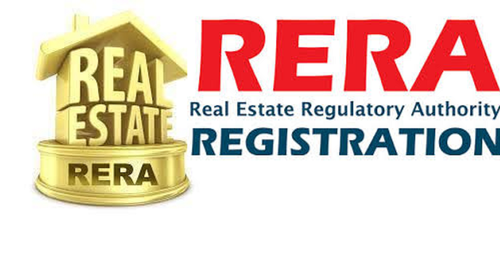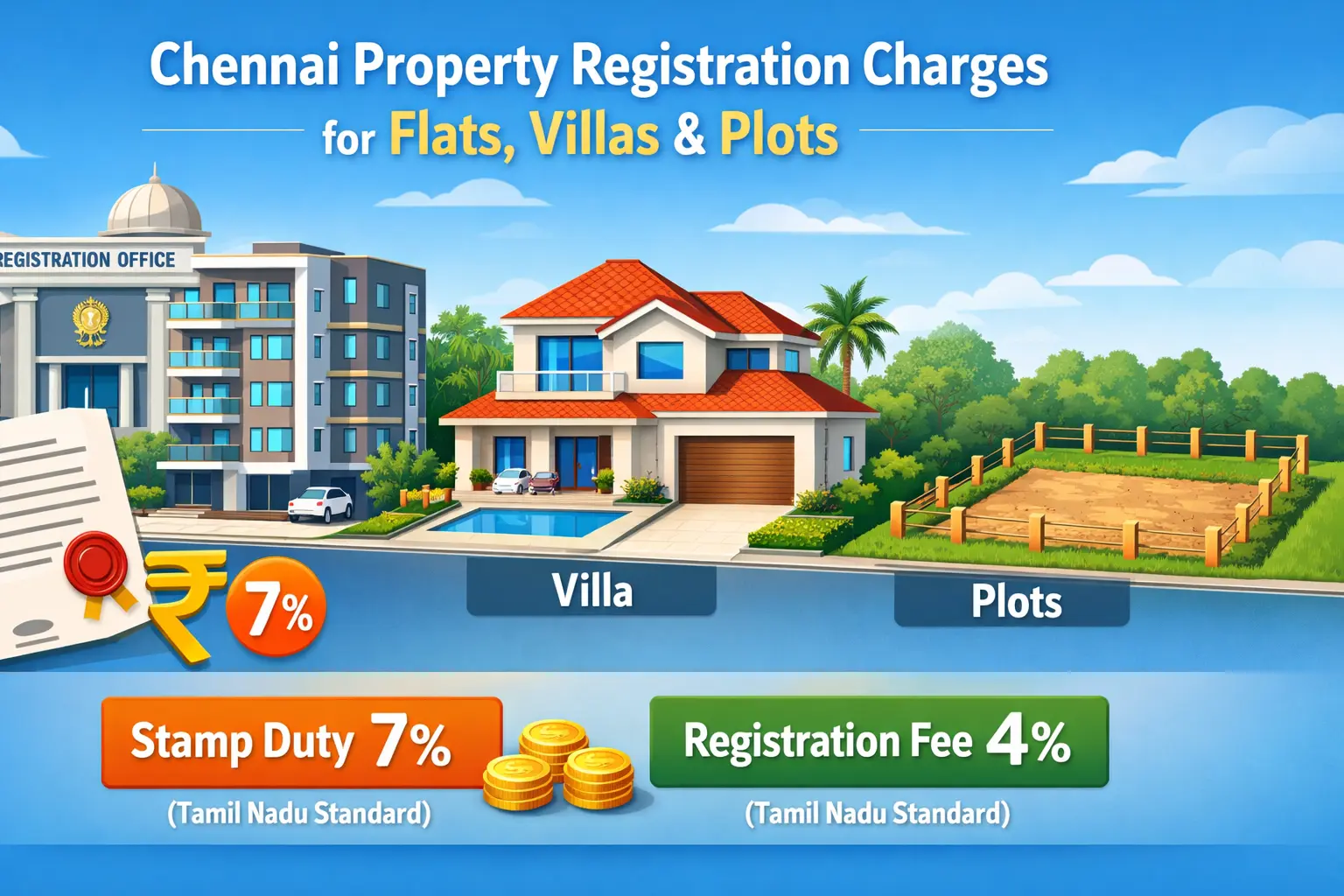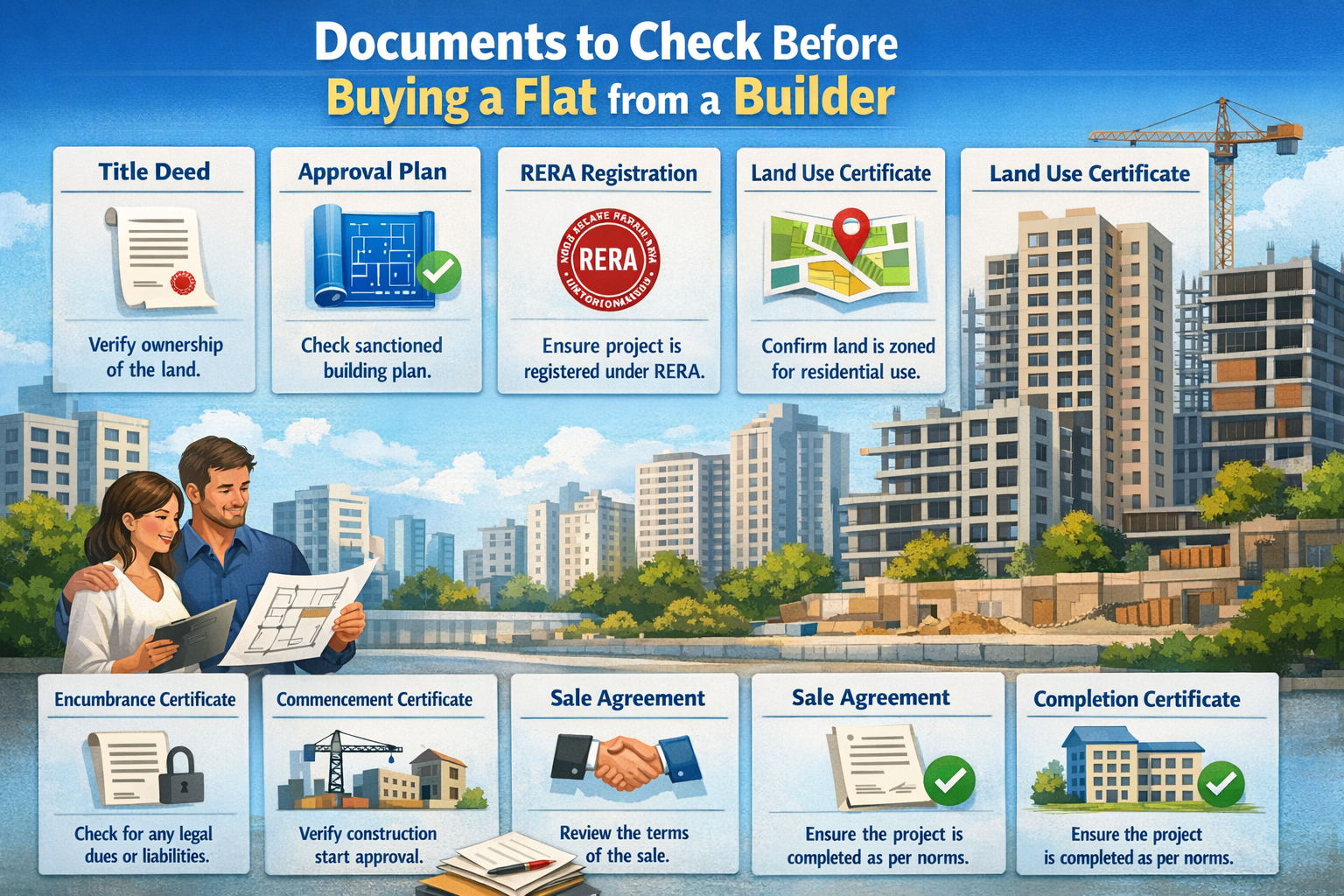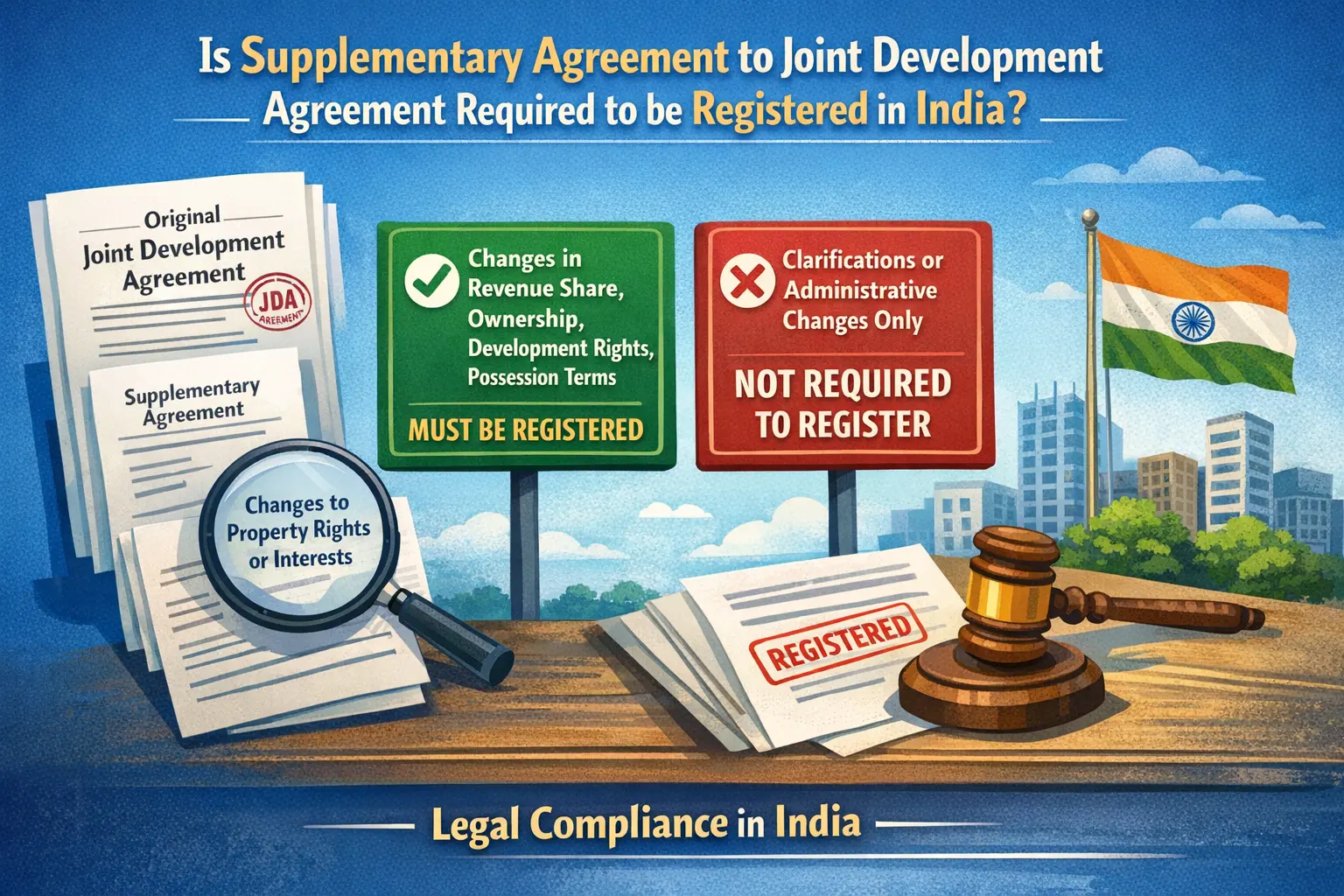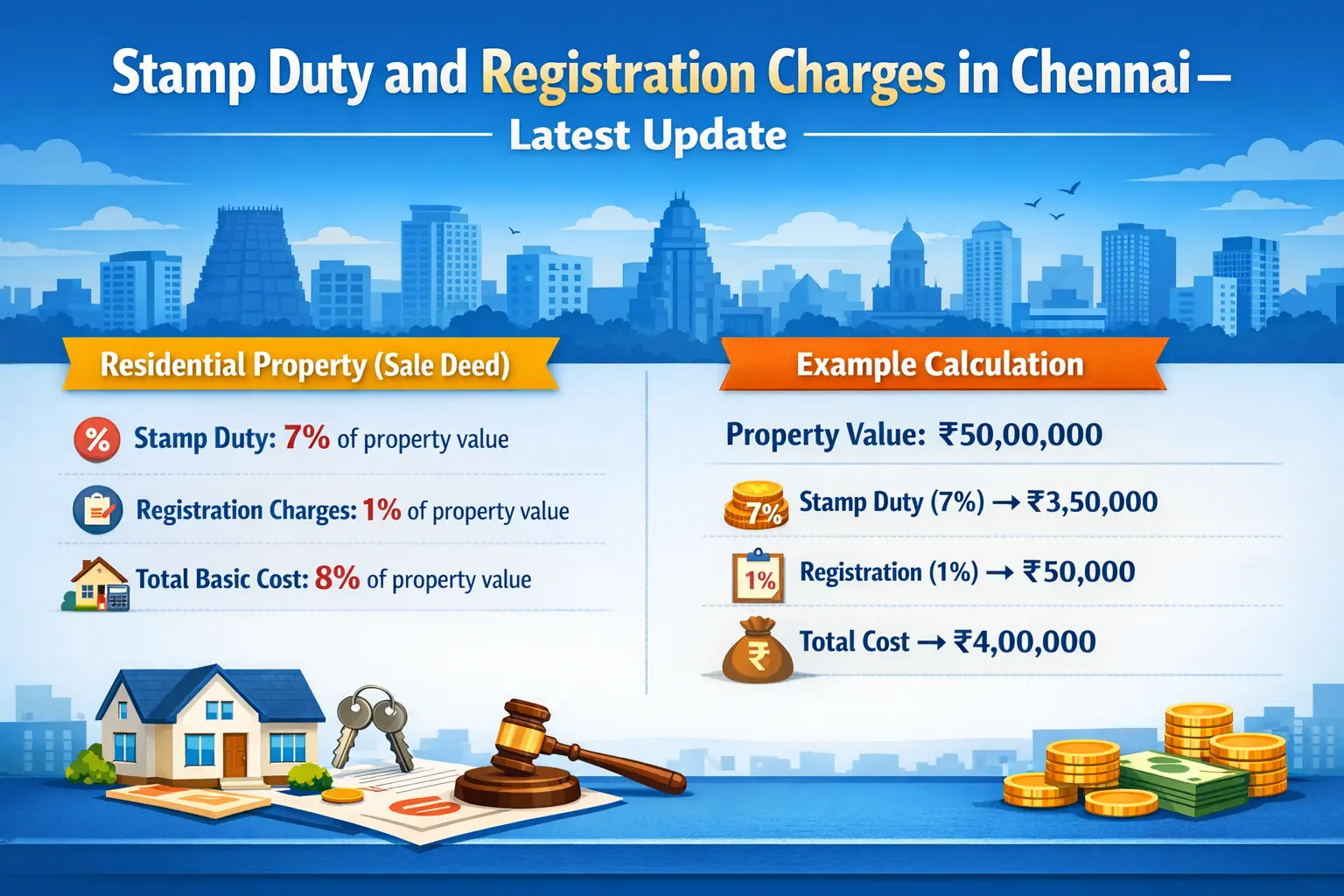Comprehensive Guide to RERA Registration Process
The Real Estate (Regulation and Development) Act, 2016 (RERA) was enacted to regulate the real estate sector in India, ensuring transparency, accountability, and protection of homebuyers' interests. It is mandatory for real estate developers (promoters) and real estate agents to register under RERA before engaging in any real estate transactions, including advertising, marketing, selling, or booking properties.
This guide provides a detailed, step-by-step process for RERA registration, covering both real estate developers (promoters) and real estate agents.
1. RERA Registration for Real Estate Developers (Promoters)
Under RERA, every real estate project that meets the following criteria must be registered before it can be advertised or sold:
The project covers more than 500 square meters of land OR
The project consists of more than 8 apartments (including phases).
If a developer fails to register a project under RERA, they will face heavy penalties, fines, and even imprisonment for non-compliance.
Step 1: Visit the Respective State RERA Website
Since RERA is implemented at the state level, every state has a dedicated RERA authority and website. Developers must register their projects on their respective state RERA website.
Here are some common RERA portals:
- Maharashtra RERA (MahaRERA): https://maharera.mahaonline.gov.in
- Delhi RERA: http://rera.delhi.gov.in
- Karnataka RERA: https://rera.karnataka.gov.in
- Tamil Nadu RERA: https://rera.tn.gov.in/
Developers must visit their respective state RERA website to proceed with the registration.
Step 2: Create an Account and Login
- Click on the “New Registration” or “Promoter Registration” link.
- Provide essential details such as developer name, email ID, contact number, and business details.
- Create an account and verify your details via OTP (One-Time Password) sent to the registered mobile number/email.
- Login to the RERA portal using your credentials.
Step 3: Fill RERA Registration Application (Form A)
Once logged in, developers must fill out Form A, which requires detailed information about the project, including:
Developer/Promoter Details:
- Name, contact details, and address.
- Business registration details (Proprietorship, Partnership, LLP, or Company).
- PAN Card and Aadhaar details.
Project Details:
- Name of the project.
- Location (district, city, pin code).
- Total land area and proposed built-up area.
- Type of project (residential, commercial, mixed-use).
- Details of any phase-wise development.
Land Title and Ownership Details:
- Title Deed or Sale Agreement (proof of land ownership).
- Encumbrance Certificate (EC) (showing no legal disputes).
- Land Use Certificate (if the land was converted from agricultural to residential/commercial use).
Project Approval Documents:
- Sanctioned Layout Plan from local municipal authorities.
- Commencement Certificate (CC) before starting construction.
- NOCs (No Objection Certificates) from fire, water, electricity, environmental, and aviation authorities (if applicable).
Financial & Bank Details:
- Estimated project cost and funding details.
- A separate RERA project bank account where 70% of the project funds must be maintained.
- Chartered Accountant (CA) certified cost estimation.
Developer's Past Project Details:
- List of completed and ongoing projects.
- Completion certificates for past projects.
Architects & Engineers' Certificates:
- Structural safety certification.
- Declaration (Form B) stating compliance with RERA guidelines.
| "BEST BUILDER FLOOR APARTMENT IN CHENNAI" |
Step 4: Pay the RERA Registration Fee
The registration fee varies state-wise and project-wise. It is generally calculated based on the total built-up area of the project.
Example of RERA Registration Fees:
- Maharashtra: ?10 per sq. meter for residential projects, ?20 per sq. meter for commercial projects.
- Delhi: ?10 per sq. meter for up to 1,000 sq. meters; ?20 per sq. meter beyond 1,000 sq. meters.
- Karnataka: ?5 per sq. meter for residential projects; ?10 per sq. meter for commercial projects.
Payment can be made through NEFT, RTGS, Demand Draft, or Online Payment Gateway.
Step 5: Submit Application & Await Approval
Once the application is filled and the fee is paid, developers must submit their application online. The RERA authority will review the application, and if all documents are correct, a RERA Registration Number is issued within 30 to 60 days.
* If the application is rejected, the developer will be notified of the corrections required, and they can reapply.
Step 6: Compliance After RERA Registration
- RERA Number Must Be Displayed – All advertisements and sales brochures must mention the RERA registration number.
- Regular Project Updates – Developers must submit quarterly progress reports.
- Maintain 70% of Buyer’s Funds in a Separate Account – To ensure completion of the project.
- Timely Project Completion – If delayed, the developer is liable to pay interest to buyers.
2. RERA Registration for Real Estate Agents
All real estate agents dealing in RERA-registered projects must obtain RERA certification before engaging in real estate transactions.
Step 1: Visit the State-Specific RERA Portal
Agents must visit their respective state’s RERA website and click on “Agent Registration.”
Step 2: Fill RERA Agent Registration Form
Personal or Business Details
- Name, address, PAN Card, Aadhaar Card.
- If operating as a business: Firm registration details.
- Contact details and email ID.
Experience & Professional Background
- Details of past real estate transactions.
Bank Details & Tax Information
- Income Tax Returns (ITR) for the past 3 years.
- Bank account details for transactions.
Step 3: Pay Registration Fee
The registration fee for agents varies by state and applicant type (individual or firm).
Example of RERA Agent Registration Fees:
- Maharashtra: ?10,000 (individuals), ?1,00,000 (companies).
- Delhi: ?25,000 (individuals), ?2,50,000 (companies).
- Karnataka: ?25,000 (individuals), ?50,000 (companies).
Payment can be made via NEFT, RTGS, or online banking.
Step 4: Approval & RERA Registration Number
After submission, the RERA authority verifies the application. If approved, the RERA agent registration number is issued within 30 to 60 days.
Agents must use their RERA number in all real estate transactions.
Penalties for Non-Compliance
Developers:
- Fine of 10% of the project cost for non-registration.
- Imprisonment of up to 3 years for fraud or misrepresentation.
Agents:
- Fine up to ?10,000 per day for misleading buyers.
- Debarment from real estate transactions for repeated offenses.
RERA registration is mandatory for developers and agents, ensuring fair transactions and protecting buyers. Proper compliance prevents legal issues and enhances market credibility.
https://www.livehomes.in/blogs
